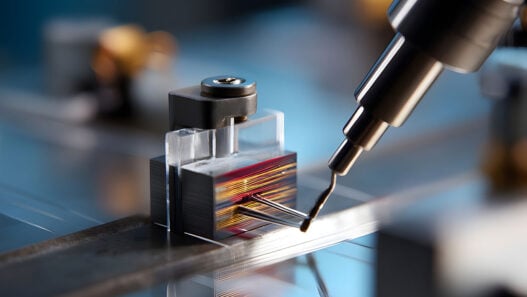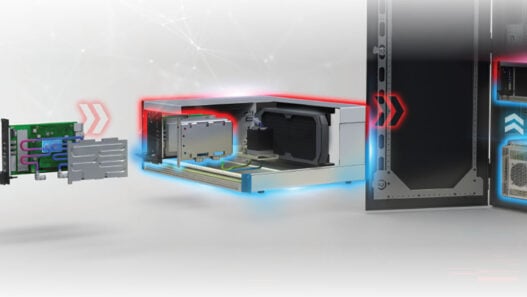The final year students at McMaster University in Ontario, Canada used their skills of ingenuity and invention to tackle the problem of affordable and reliable melanoma diagnosis.
Current diagnostic options for melanoma are either visual inspection, which can be highly subjective and unreliable, or a full biopsy of the tissue, which is painful, expensive and time-consuming. Early diagnosis of melanoma is vital for effective treatment. If detected early, the five-year survival rate of melanoma patients is 98%.
The team’s solution, sKan, is a low-cost hand held device that is placed over a suspect lesion for a real-time diagnosis. The sKan system uses a bank of thermistors (thermally-sensitive resistors) to build a heat map of the suspect skin region and detect areas of malignant cells.
The system utilises the difference in metabolic rate between healthy and cancerous cells—the higher metabolic rate of the cancerous cells means that they recover their temperature faster than healthy cells, following controlled cooling of the skin.
Team members Michael Takla, Rotimi Fadiya, Prateek Mathur, and Shivad Bhavsar scooped the international prize after impressing the judges at the Canadian national finals of the award earlier this year.
“It’s a very clever device with the potential to save lives around the world.” said Sir James Dyson, the founder and namesake of the award, who congratulated the winning team. The sKan team plan to use the prize money to develop their prototype further and begin seeking the FDA approval needed to for the device to be used clinically.







